13 Incredible Benefits of Growing Yarrow in Your Garden
Yarrow is a versatile and hardy plant that can bring a variety of benefits to your outdoor garden. Known for its vibrant flowers and low-maintenance nature, yarrow thrives in a range of soil types and weather conditions. It improves soil health by breaking up compacted ground, allowing better water retention and nutrient flow. Yarrow also attracts beneficial insects like bees and butterflies, supporting the overall ecosystem in your garden. Its drought-tolerant qualities make it ideal for areas with limited water. In addition, yarrow’s ability to repel pests and prevent soil erosion adds extra value to your garden. With its numerous advantages, yarrow is an excellent choice for any garden looking to thrive with minimal effort.
This post may contain affiliate links, which helps keep this content free. Please read our disclosure for more info.
Improved Soil Health
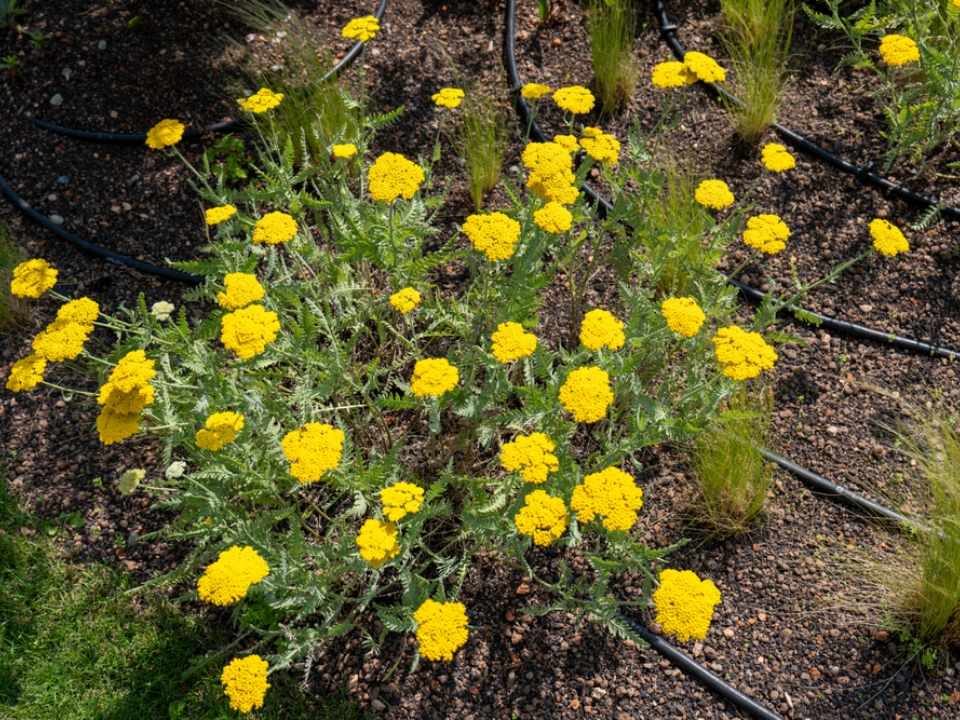
Yarrow is known for its ability to improve soil health. This plant has deep roots that help to break up compacted soil, making it more porous and allowing water and nutrients to reach deeper layers. As a result, yarrow contributes to a healthier growing environment for other plants in the garden.
In addition to breaking up compacted soil, yarrow’s roots also help to stabilize the soil structure. By growing yarrow in your garden, you can improve the overall quality of the soil, ensuring that it is better able to support a variety of plants.
Attracts Beneficial Insects
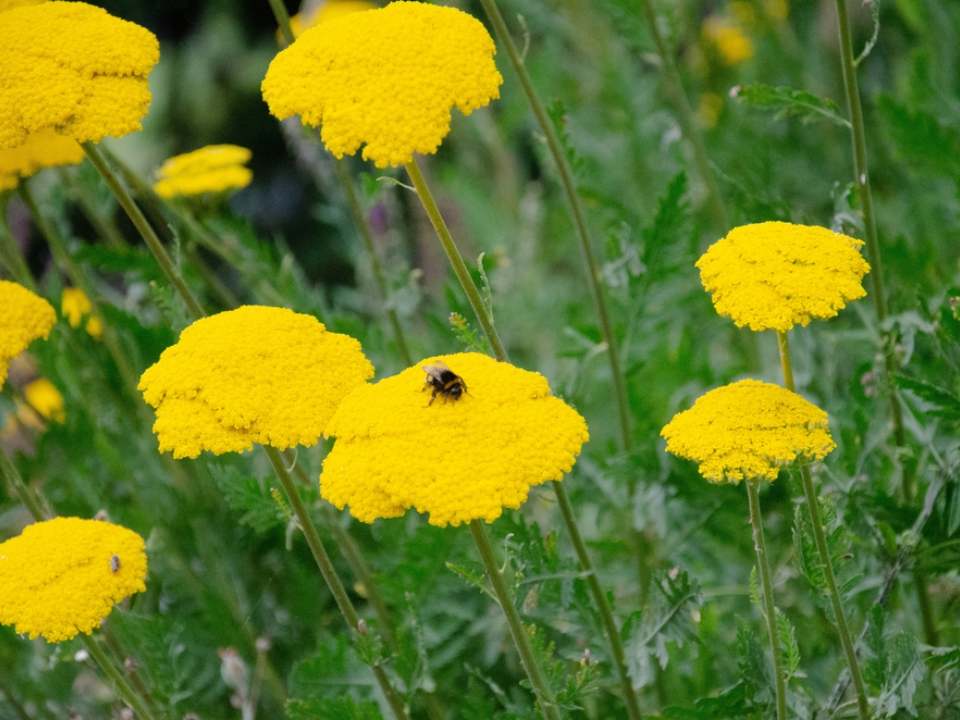
Adding yarrow to your outdoor garden can help attract beneficial insects. This plant produces small, aromatic flowers that draw pollinators like bees and butterflies. These insects play a crucial role in ensuring the successful pollination of many garden plants.
Beyond pollinators, yarrow also attracts predators of harmful pests. Ladybugs, lacewings, and parasitic wasps are just a few of the insects that will be drawn to your garden, helping to keep harmful pests under control naturally.
Erosion Control
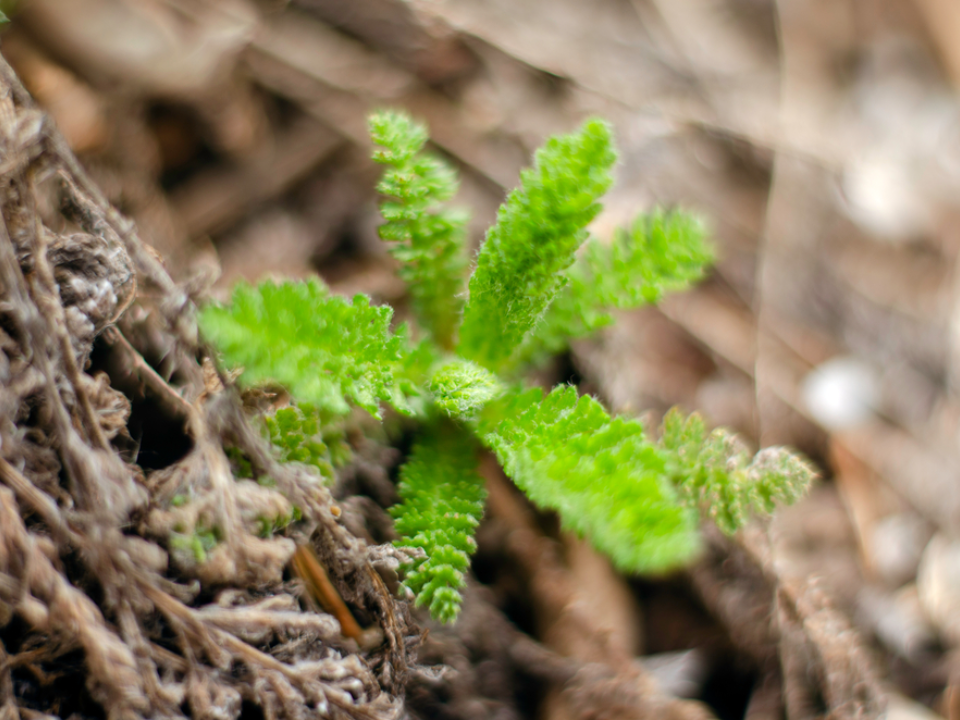
Yarrow can serve as an excellent natural solution for erosion control. The plant’s dense growth habit and deep roots help to stabilize the soil, preventing it from washing away during heavy rains. This makes it ideal for planting on slopes or areas prone to soil erosion.
By adding yarrow to erosion-prone areas, you create a natural barrier that helps protect the landscape. Its extensive root system will bind the soil together, reducing the effects of water runoff and promoting a healthier environment.
Drought Tolerance
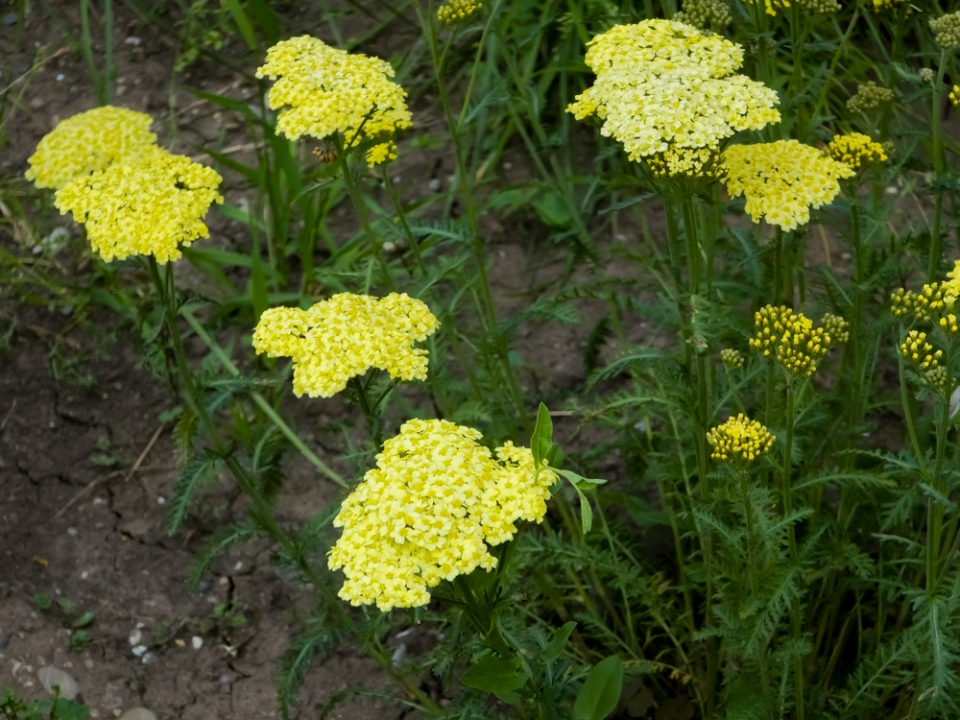
One of the key benefits of yarrow is its ability to withstand dry conditions. This plant is highly drought-tolerant and can thrive in areas with minimal water. Its deep roots allow it to access water from deeper soil layers, reducing its reliance on surface moisture.
With climate change making droughts more common in many areas, yarrow is an ideal addition to any garden. Its resilience to dry conditions ensures that your garden can still flourish even during periods of limited rainfall.
Low Maintenance
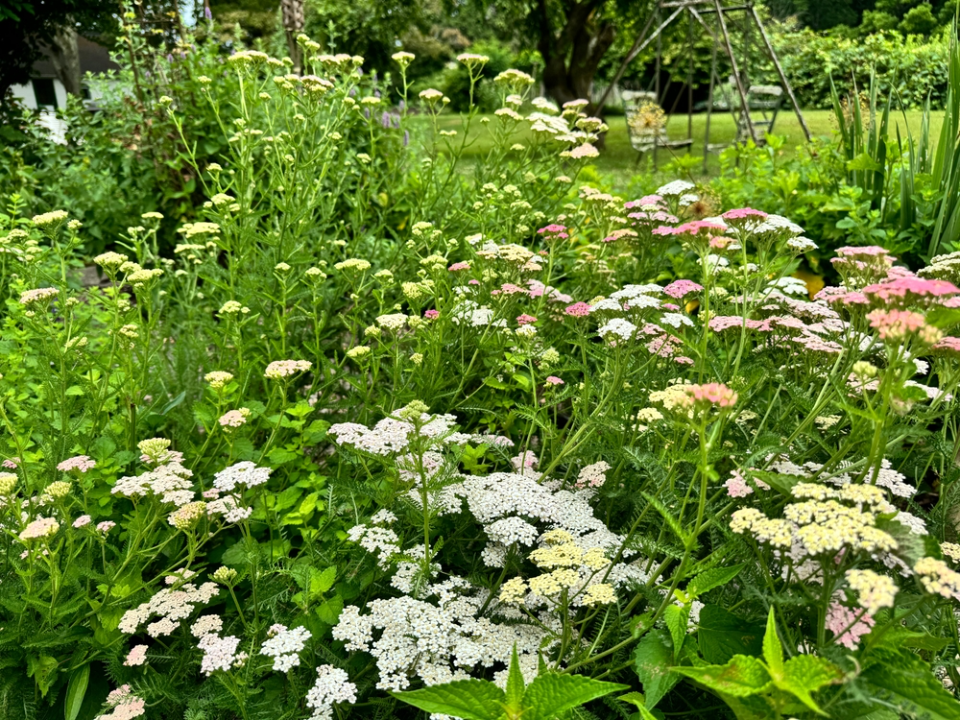
Yarrow is an easy plant to care for, making it a great option for low-maintenance gardens. It does not require regular watering or frequent fertilization to thrive. Once established, yarrow is capable of growing in a variety of soil types and weather conditions, making it a hardy plant in many environments.
This plant is also pest-resistant, meaning you will not have to spend a lot of time dealing with garden pests. Its ability to grow in diverse conditions makes it an excellent choice for gardeners seeking to reduce their workload while still maintaining a beautiful garden.
Medicinal Uses

Yarrow has been used in traditional medicine for centuries. Its leaves and flowers contain compounds that can be used to create herbal remedies. Yarrow is known to help with issues such as digestive problems, fever, and even wound healing when applied topically.
Adding yarrow to your garden not only benefits your outdoor space visually but can also provide you with natural medicinal remedies. Many gardeners appreciate the multi-purpose nature of yarrow, using it as both a decorative and functional plant.
Aesthetic Appeal
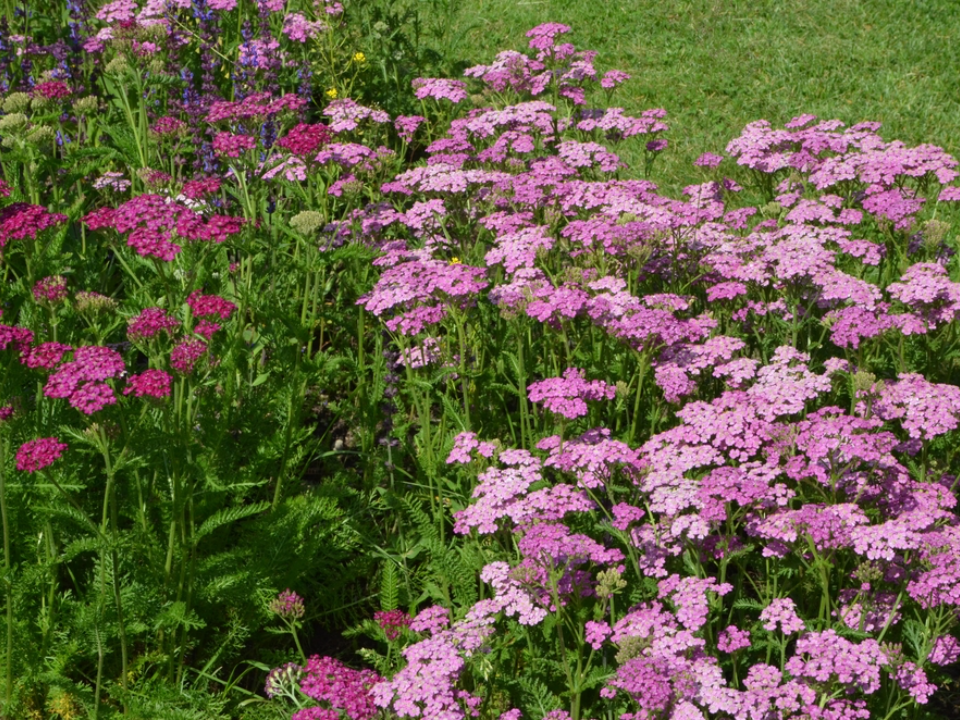
Yarrow adds a vibrant splash of color to your garden. It produces clusters of small flowers in shades of white, pink, yellow, and red, creating a pleasing contrast with the green foliage. The flowers can be arranged in a variety of ways, making it suitable for both formal and informal garden settings.
Whether planted in clusters or as border plants, yarrow’s beauty makes it a popular choice for ornamental gardens. It attracts the eye and adds interest to flower beds, making it a valuable addition to any garden.
Companion Planting
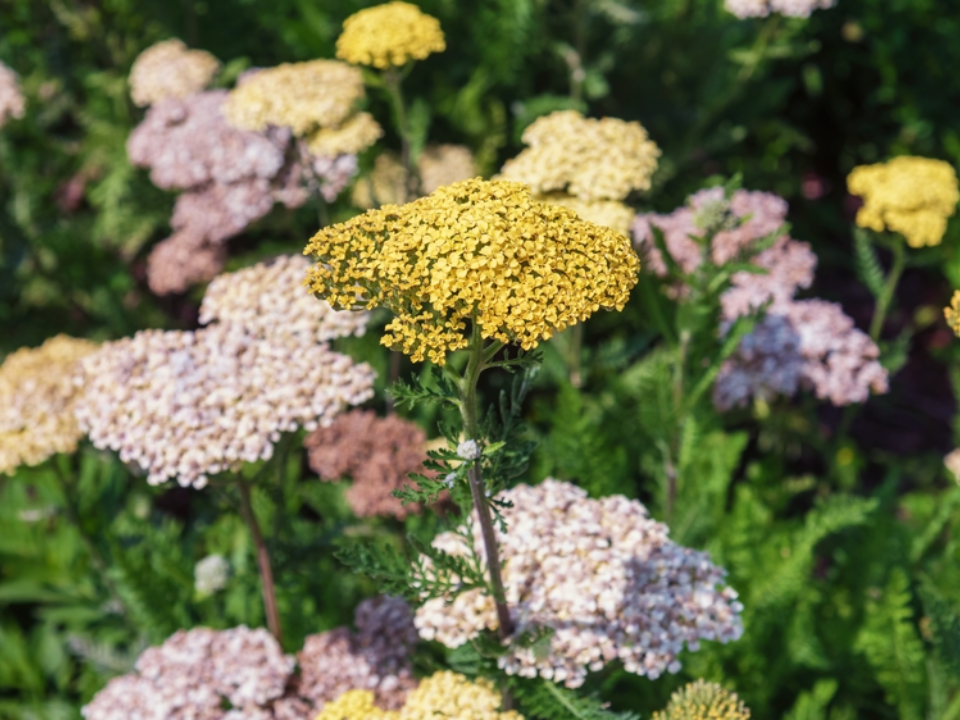
Yarrow is a valuable companion plant for many garden vegetables and flowers. It can help deter harmful pests from other plants by attracting predatory insects. The strong scent of yarrow also works as a natural repellent to certain pests like aphids, slugs, and spider mites.
Growing yarrow alongside other plants can enhance their overall health and increase their resistance to pests. This makes it a natural and chemical-free solution for pest control in your garden.
Adds Fragrance to Your Garden
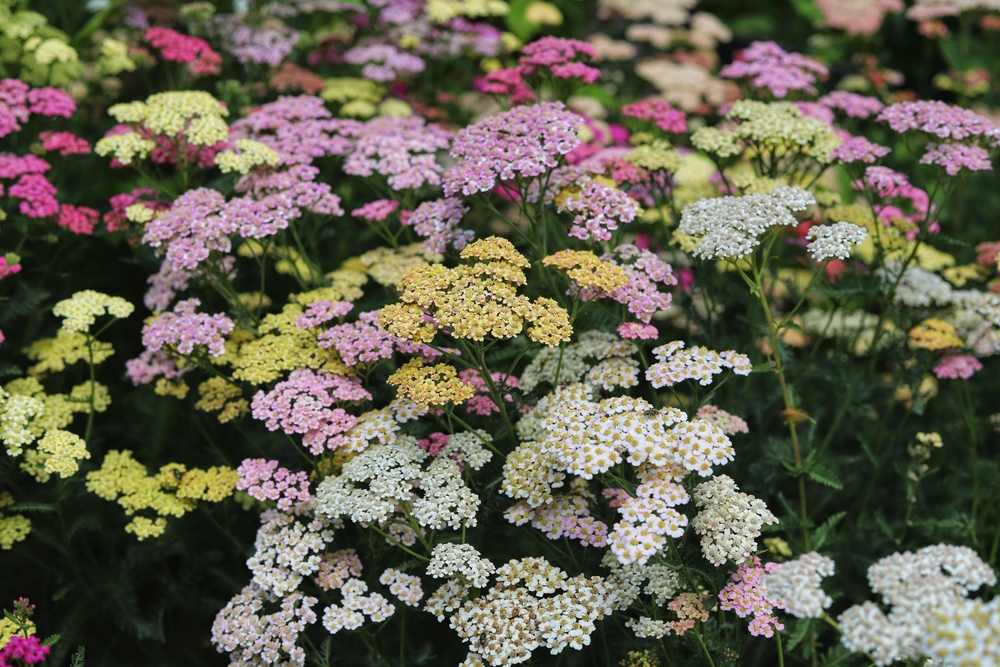
The aromatic leaves of yarrow can add a pleasant fragrance to your garden. The plant’s leaves release a strong, herbal scent when brushed or crushed, which can enhance the sensory experience in your outdoor space. Its fragrance also has an insect-repellent quality, helping to keep mosquitoes and other pests at bay.
The fragrance of yarrow can be particularly enjoyable in herb gardens, where it complements the scents of other aromatic plants like lavender and rosemary. The fresh, clean smell of yarrow makes it a delightful addition to any garden that appeals to the senses.
Versatility in Garden Design
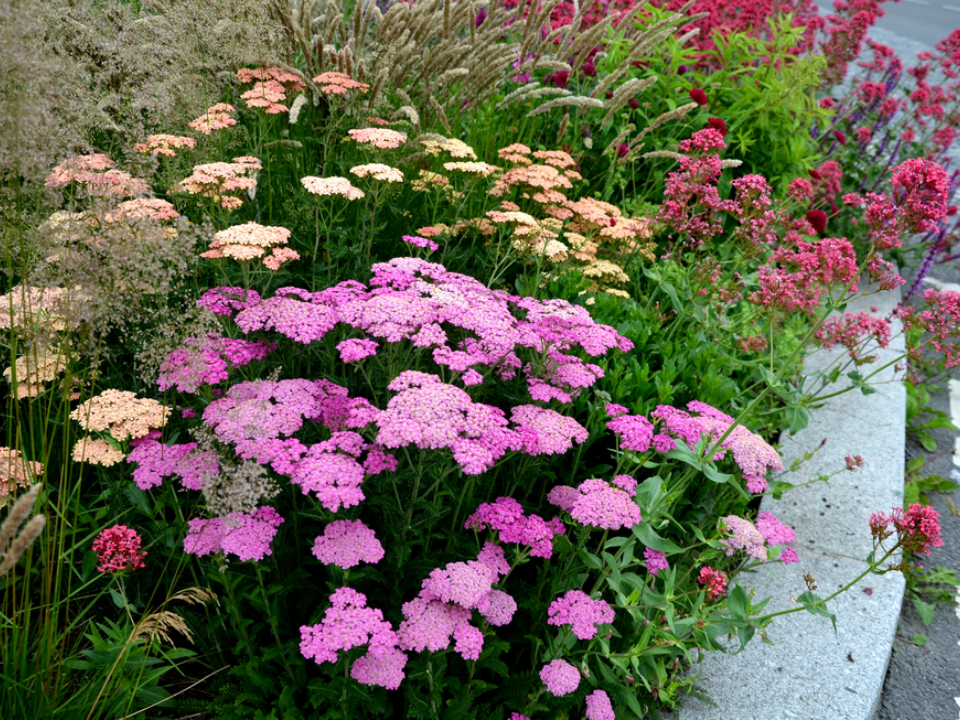
Yarrow is a versatile plant that can be used in various garden designs. It works well in both wild, naturalistic gardens and more structured, formal gardens. Its ability to thrive in different conditions allows it to fit into a wide range of garden styles, from cottage gardens to modern landscapes.
In addition to being versatile in design, yarrow’s durability makes it a great choice for planting in areas that see a lot of foot traffic. It can withstand occasional disturbances, such as being brushed against or stepped on, without losing its appearance or health.
Natural Pest Control
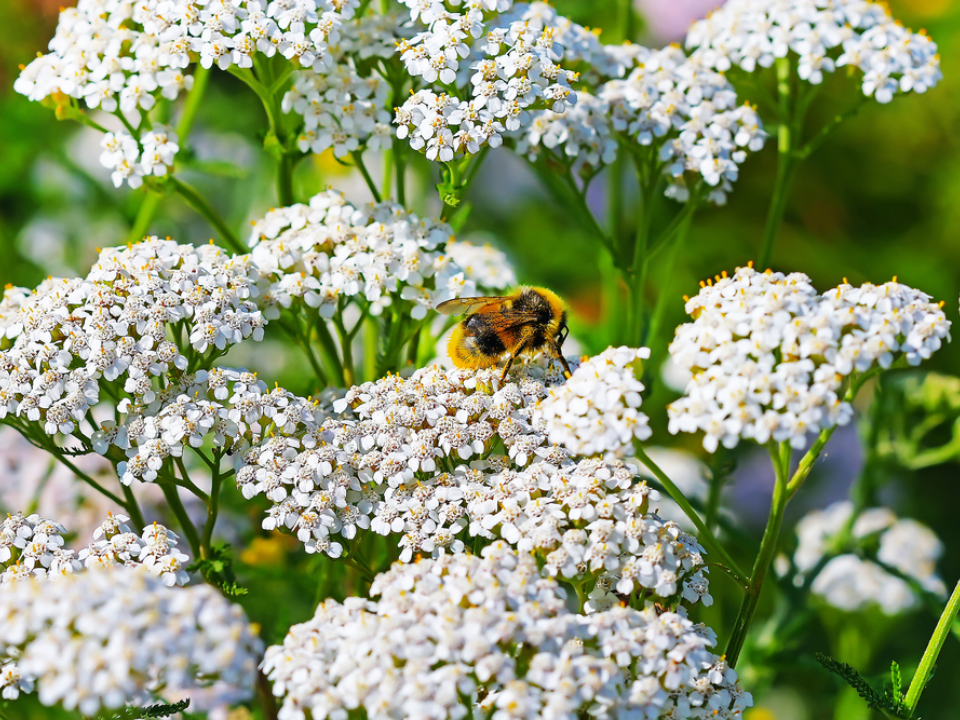
Yarrow is an excellent plant for natural pest control. The flowers attract pollinators, while its foliage provides shelter to beneficial insects that prey on common garden pests. Ladybugs, lacewings, and hoverflies are just a few examples of beneficial insects that will flock to your yarrow plants.
In addition to attracting beneficial insects, yarrow can deter certain harmful pests like aphids, cabbage worms, and spider mites. By including yarrow in your garden, you can create a more balanced ecosystem and reduce your reliance on chemical pesticides.
Preventing Weeds
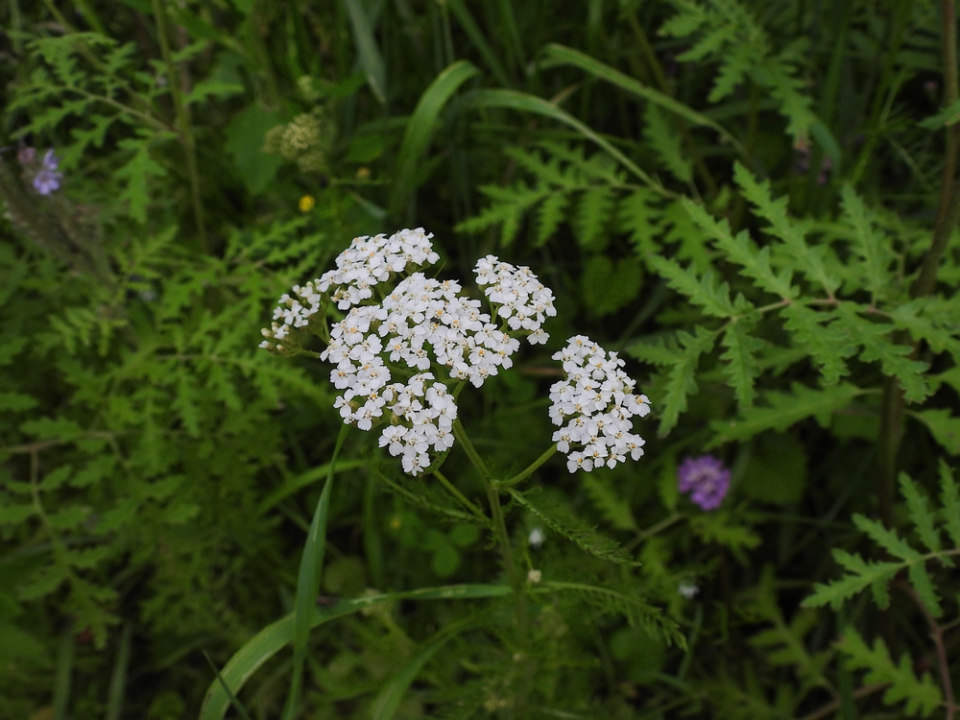
Yarrow’s thick foliage and rapid growth help suppress the growth of weeds in your garden. By growing yarrow in the garden, you create a dense layer of ground cover that blocks sunlight from reaching weed seeds, preventing them from sprouting.
This natural weed barrier not only saves you time in maintaining your garden but also provides a healthy growing environment for the plants that you want to thrive. Yarrow’s ability to keep weeds in check makes it an efficient and eco-friendly addition to any garden.
Improves Pollination
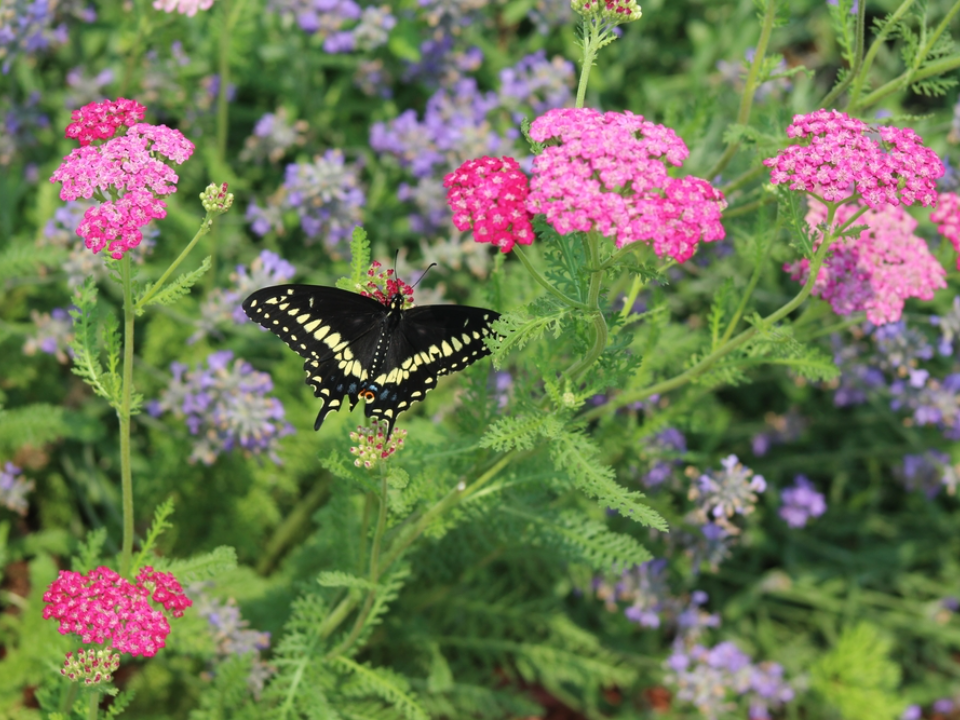
Yarrow is a favorite of pollinators, particularly bees and butterflies. These beneficial insects are attracted to the plant’s bright, fragrant flowers, which provide a valuable food source. By adding yarrow to your garden, you help improve the pollination of other plants as well, supporting the overall health of your garden.
Pollinators like bees play a vital role in the ecosystem, and having yarrow in your garden helps provide them with a steady supply of nectar. The increased pollination from these insects can lead to larger yields and healthier plants in your garden.
This article originally appeared on Avocadu.
